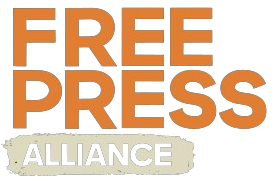Evan Gershkovich tops the One Free Press Coalition’s list as one of the most serious cases of journalistic imprisonment.
Although born in the United States, he has a connection to Russia through his parents, who emigrated to New Jersey during the Soviet period. This familial tie prompted his interest in and eventual fluency in Russian.
Following college graduation, he embarked on his journalism career as a news assistant at the New York Times. However, driven by his connection to Russia, he made the decision to relocate there. He sought to immerse himself in the country’s culture and life, leading him to positions at The Moscow Times and later at Agence France-Presse. Currently, he serves as a country correspondent for The Wall Street Journal.
During the COVID-19 pandemic, Gershkovich distinguished himself through his coverage of the events in Russian hospitals, He earned the trust of young doctors and delivered accurate information about the situation.
On March 30, 2023, while conducting research for an article on the Russian military in Yekaterinburg, Gershkovich was detained by local authorities on suspicion of espionage. They alleged that he was seeking classified information pertaining to a Russian military company. Since then, he has been held in Lefortovo prison.
Evan Gershkovich has now been deprived of his liberty for over 410 days. The Russian government has yet to present any evidence that could incriminate him as a US spy, rendering his detention unjustified in the eyes of society. Both The Wall Street Journal and the journalist’s lawyers have provided evidence of his journalistic work. Additionally, President Biden has called for his immediate release, asserting that Evan was in Yekaterinburg not to spy, but to carry out his duties as a reporter.
Since Vladimir Putin assumed power in 2000, freedom of the press in Russia has faced persistent threats. However, since the invasion of Ukraine, this situation has significantly deteriorated. Evan Gershkovich’s accusation of espionage is reminiscent of Cold War-era practices. This case has garnered global media attention, highlighting how Putin has curtailed access to independent and Western media operating within the country since the onset of the conflict between Russia and Ukraine.
While incarcerated in a Russian prison, Evan confronts precarious conditions that may impact his future mental and physical well-being. Approximately ninety percent of his day is confined within a small, isolated cell. To maintain his mental health and alleviate boredom, he engages in reading books, writing letters to friends and family, and practicing yoga.
A trial is still awaited with no date set and Evan’s early release is expected. Prisoner exchange negotiations are also underway with the United States, an action that has been carried out in the past. At the moment, a social campaign is being run to support Evan and his family with #FreeEvan and a Gofoundme for financial support.
Is Russia threatening press freedom?
Since the beginning of Vladimir Putin´s rule in Russia, journalism has faced escalating threats. Russian authorities have systematically curtailed the rights to peaceful protest, freedom of information, and independent journalism. Additionally, they have intensified sanctions against individuals attempting to exercise these freedoms, effectively stifling all forms of dissent within the Russian Federation.
In the aftermath of Russia’s invasion of Ukraine, igniting conflict between the two nations, efforts to suppress the press have intensified. President Vladimir Putin has tightened controls on international media access and imposed censorship on local media and social networks.
The onset of censorship became apparent with the prohibition of terms such as ‘war’ or ‘invasion’, mandating the use of phrases like ‘special operation’ or ‘military’ to describe the conflict. Media outlets failing to adhere to these directives face closure and censorship.
Additionally, the Russian parliament is pursuing legislation to increase penalties for disseminating false news to 15 years in prison. Public demonstrations and protests are also banned, with the threat of arrest for those who organize them.
A new amendment to Russia’s Law on Foreign Agents not only jeopardizes journalists but also extends penalties to their relatives. Under this provision, family members of journalists deemed adversaries of the president can also face punishment.
The case of the independent media outlet Meduza exemplifies the Kremlin’s crackdown on press freedom and its efforts to suppress public awareness of events within the country.
Censorship of the media started at the beginning of the war with the mandate to sign articles by journalists as Foreign Agent, and likewise on their website and all social networks it must appear ‘This message (content) has been created or distributed by a foreign media performing the functions of a foreign agent or by a Russian legal entity performing the functions of a foreign agent’ in big, bold and centered letters at the beginning of each publication. This caused advertising to dry up and revenues to fall, so they had to cut their employees’ salaries in half and close their offices in Riga and Moscow. In order to stay afloat, they conducted a crowdfunding campaign that had attracted 33,000 donations from their audience. However, due to international sanctions against Russia, the use of MasterCard or Visa cards was eliminated, making it impossible to receive these donations.
Currently, Meduza is relying on information provided by its freelancers in Russia as it remains dedicated to reporting the truth about the war’s events. They provide a link on their website for those interested in financially supporting the media.

